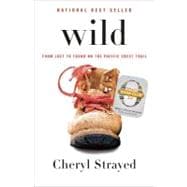
Note: Supplemental materials are not guaranteed with Rental or Used book purchases.
Purchase Benefits
What is included with this book?
| Author's Note | p. ix |
| Map | p. xi |
| Prologue | p. 3 |
| The Ten Thousand Things | |
| The Ten Thousand Things | p. 9 |
| Splitting | p. 28 |
| Hunching in a Remotely Upright Position | p. 38 |
| Tracks | |
| The Pacific Crest Trail, Volume 1: California | p. 47 |
| Tracks | p. 61 |
| A Bull in Both Directions | p. 76 |
| The Only Girl in the Woods | p. 102 |
| Range of Light | |
| Corvidology | p. 119 |
| Staying Found | p. 136 |
| Range of Light | p. 146 |
| Wild | |
| The Lou Out of Lou | p. 177 |
| This Far | p. 190 |
| The Accumulation of Trees | p. 206 |
| Wild | p. 222 |
| Box of Rain | |
| Box of Rain | p. 237 |
| Mazama | p. 262 |
| Into a Primal Gear | p. 274 |
| Queen of the PCT | p. 289 |
| The Dream of a Common Language | p. 300 |
| Acknowledgments | p. 313 |
| Books Burned on the PCT | p. 317 |
| Table of Contents provided by Ingram. All Rights Reserved. |
The New copy of this book will include any supplemental materials advertised. Please check the title of the book to determine if it should include any access cards, study guides, lab manuals, CDs, etc.
The Used, Rental and eBook copies of this book are not guaranteed to include any supplemental materials. Typically, only the book itself is included. This is true even if the title states it includes any access cards, study guides, lab manuals, CDs, etc.